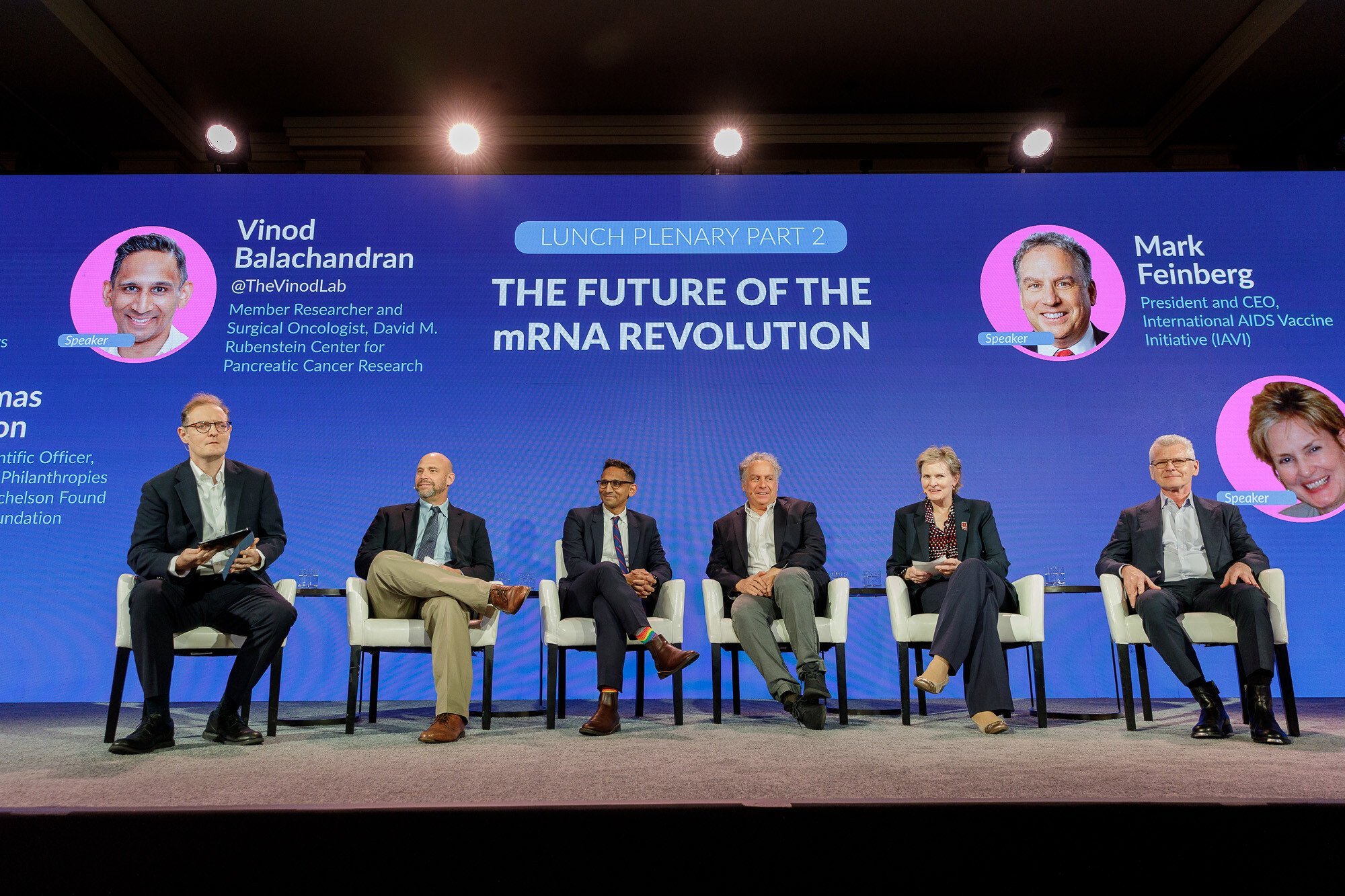Philanthropy’s Role in Advancing mRNA Technology
From left to right: Matt Herper, Senior Writer, Medicine, Editorial Director of Events, STAT News; Thomas Conlon, Chief Scientific Officer, Michelson Philanthropies; Vinod Balachandran, Member Researcher and Surgical Oncologist, David M. Rubenstein Center for Pancreatic Cancer Research; Mark Feinberg, President and CEO, International AIDS Vaccine Initiative (IAVI); Mary Marovich, Director, Vaccine Program, Division of AIDS, National Institute of Allergy and Infectious Diseases, National Institutes of Health; Ansbert Gadicke, Managing Partner, BioImpact Capital and Managing Director, MPM Capital
Maintaining mRNA’s momentum will require continued investment, effective collaboration, and philanthropic contributions, Dr. Thomas Conlon of Michelson Philanthropies said on a panel at the Milken Institute’s Future of Health Summit
Hundreds of medical experts and healthcare industry leaders came together at the Salamander hotel in Washington, D.C., for the 2022 Milken Institute Future of Health Summit. After nearly three years of Covid-19, the majority of sessions looked at how the pandemic has reshaped approaches to treatment, research, and public health policy.
The summit convened the best minds in the world to overcome the most significant health challenges by matching human, financial, and scientific resources with the most innovative, inclusive, and impactful ideas.
On day two of the summit, Michelson Philanthropies’ Chief Scientific Officer Dr. Thomas Conlon joined a panel on the future and potential of messenger RNA (mRNA) technology. Known for the rapid development of Covid-19 vaccines, mRNA also has the potential to improve treatments for a range of conditions, including cardiovascular disease.
“Philanthropy’s role is to provide opportunities for innovation that you may not get through other funding sources.”
—Dr. Thomas Conlon, Chief Scientific Officer at Michelson Philanthropies
“When it comes to cardiovascular diseases, especially acute cardiac events such as myocardial infarction,” Conlon said, “it’s important to add in new genes or proteins immediately after the event.” Messenger RNA technology, he explained, could introduce genes that prevent cell death, promoting the regeneration of cardiac tissue and improving the heart’s ability to function in the long term.
The panelists, who specialized in pancreatic cancer research, AIDS vaccine development, and infectious diseases, all highlighted the promise mRNA represents, noting that research into the technology has ramped up largely thanks to the success of Covid vaccines. However, maintaining this momentum will require continued investment, effective collaboration, and—as Conlon pointed out—philanthropic contributions.
“Philanthropy’s role is to provide opportunities for innovation that you may not get through other funding sources,” he said. “The Michelson Philanthropies & Science Prize for Immunology and Michelson Prizes: Next Generation Grants are both aimed towards investigators under 35 years of age, to give them the opportunity to investigate innovative ideas, with disruptive technology, towards immunology and vaccines.”
When it comes to fulfilling the potential of mRNA technology and changing the future of healthcare, “profit isn’t the ultimate goal. It’s getting the job done.”


